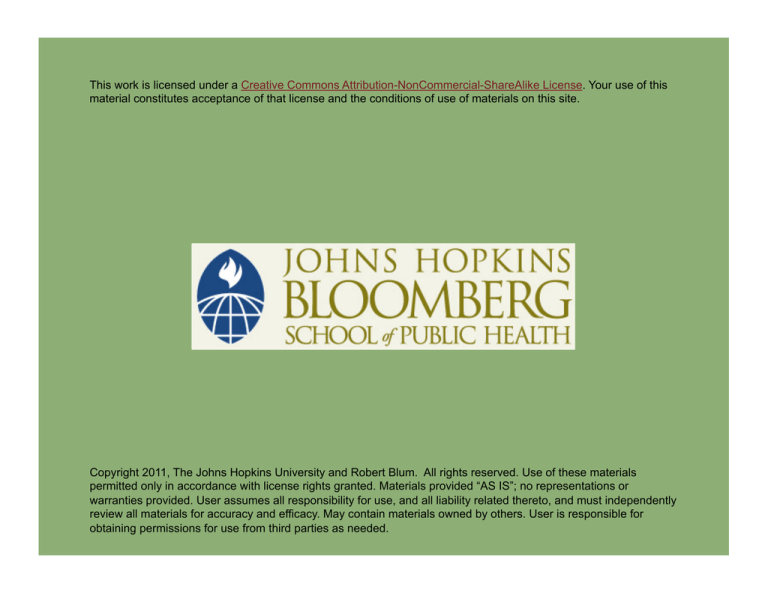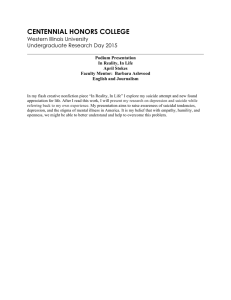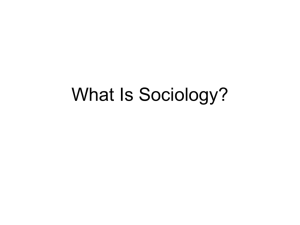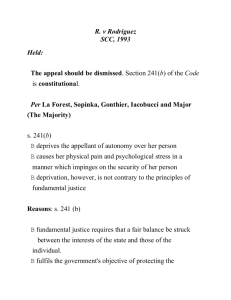
This work is licensed under a Creative Commons Attribution-NonCommercial-ShareAlike License. Your use of this
material constitutes acceptance of that license and the conditions of use of materials on this site.
Copyright 2011, The Johns Hopkins University and Robert Blum. All rights reserved. Use of these materials
permitted only in accordance with license rights granted. Materials provided “AS IS”; no representations or
warranties provided. User assumes all responsibility for use, and all liability related thereto, and must independently
review all materials for accuracy and efficacy. May contain materials owned by others. User is responsible for
obtaining permissions for use from third parties as needed.
Section E
A Conceptual Framework for Suicidality
An Ecological Model for Suicide Reduction
Macro-Level Environment
Gun-control legislation
3
An Ecological Model for Suicide Reduction
Macro-Level Environment
Community Environment
Risk
• Media portrayal
Protection
• Access to mental health services
• Monitoring of alcohol use
• Opportunities to contribute
• Caring adults
4
An Ecological Model for Suicide Reduction
Macro-Level Environment
Community Environment
Family
Risk
Protection
• Separation/divorce
• Connectedness to parents
• Discord
• Psychopathology
• Neglectful parenting
• Parent-child conflict
• Low maternal responsiveness
• Harsh parental discipline
• Access to guns in home
• History of suicide
5
An Ecological Model for Suicide Reduction
Macro-Level Environment
Community Environment
Family
School/Peers
Risk
• Drop out
• Hostile school environment
• Victimization
• Social isolation
• History of suicide
Protection
• Suicide prevention education
• Connectedness to schools
• Academic performance
6
An Ecological Model for Suicide Reduction
Macro-Level Environment
Community
Family
School/Peers
Risk
Risk
Individual
Protection
Protection
Unconfirmed
• Low serotonin
• Spirituality/ religiosity
• Family system dysfunction
• Physical/sexual abuse
• Adaptable temperament
• Parental death/loss
• Low self-esteem
• Neuroticism
• Hopelessness
• Introversion
• Impulsivity
• Legal conflicts
• Interpersonal loss
• Substance abuse
• Unemployment
• GLBT
• Mental illness, mood disorders affective disorders, antisocial behaviors, anxiety disorders
• Academic problems
7





